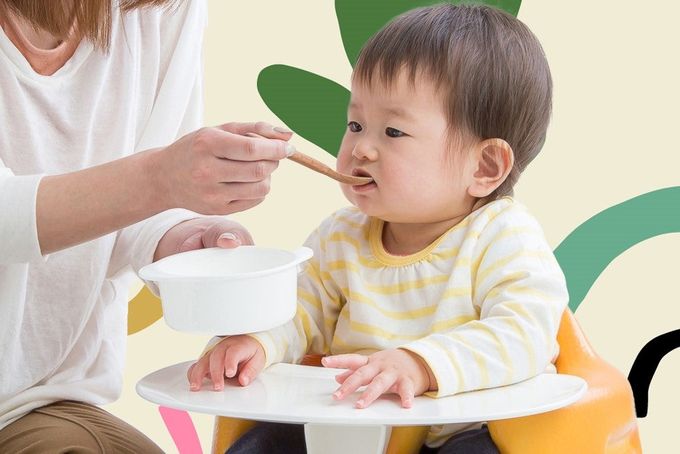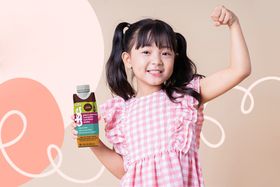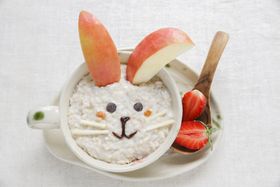How to Avoid Toxic Heavy Metals in Baby Food: A Guide for Concerned Parents
Worried about heavy metals like arsenic and lead in baby food? Here's how to avoid foods with dangerous toxins, reducing your child's exposure to neurotoxins and supporting healthy development.
Updated August 20, 2024

Most baby foods on the market contain dangerous cadmium, arsenic, lead, and mercury concentrations. Frequent ingestion of low amounts of heavy metals can eventually lead to the development of autism in children, among other debilitating health issues. Once in the blood, heavy metals act as neurotoxins, directly targeting the nervous system and the brain.
Therefore, parents of infants and toddlers have been understandably at a loss about what to feed their children ever since this fact became public. However, there are many ways to minimize their babies’ intake of heavy metals, and we will explain some of the most practical in this article.
» Uncover how to reduce your child’s exposure to toxins through their diet
Cadmium Exposure & How to Avoid It
While cadmium is exceptionally harmful, it has not been studied very much regarding neurotoxicity. However, multiple researchers found that exposure to cadmium places developing children at considerable risk of developing mental retardation and a decreased IQ. Furthermore, regular exposure to a low cadmium level from baby food can cause a buildup in the kidneys and, subsequently, kidney disease and fragile bones.
Like the other three heavy metals of concern, cadmium is a known human carcinogen, which means that it can also trigger malignant diseases in children if they come in contact with it frequently.
To avoid a significant concentration of cadmium accumulating in your baby’s body, choosing a balanced diet that includes a vast array of fruits, vegetables, grains, and lean protein is recommended. Some of the ingredients in baby food that often have significant levels of cadmium are carrots, quinoa, and rice.
» Find out why infants and children are more vulnerable to ingested toxins
Arsenic Exposure & How to Minimize It
This heavy metal can easily reach the developing brain and cause neurotoxic effects, including programmed cell death, medically known as apoptosis. Studies found that arsenic exposure may cause health problems such as cancer, liver damage, dermatosis, and nervous system disturbances. The latter include polyneuropathy, hallucinations, disorientation, and agitation. Even though exposure to sufficient arsenic can be deadly, this is not the case with baby food, as children are exposed to low amounts of arsenic.
Rice is known for containing extreme concentrations of arsenic, as crops absorb this heavy metal through the roots from water, soil, pesticides, and insecticides. For this reason, rice contains 10 to 20 times more arsenic than other crops.
One great way to drastically minimize your baby’s exposure to arsenic is to replace infant rice cereal with multigrain baby cereal, which can lower arsenic concentration by up to 84%.
» Discover the potential downsides to rice cereal for babies
Lead Exposure & How to Avoid It
Lead is perhaps the most dangerous and potent heavy metal. It directly targets the brain and causes severe neurotoxicity within a short time. The heavy metal poses a health threat even when present in the child’s blood in trace amounts. Damage to the brain and the nervous system, slowed growth and development, learning and behavior problems, and hearing and speech problems are only some of the health issues exposure to lead can result in. Moreover, exposure to significant lead concentrations may cause anemia, weakness, and kidney and brain damage.
To avoid lead, you should include a wide range of grains in your baby’s diet, such as oats, barley, quinoa, and bulgur.
Another way to avoid the accumulation of excessive lead amounts in your child’s body is to stay away from the fruit juice found on the market. Instead of giving your child stored fruit juice, you can opt for sliced or pureed whole fruits. A recent study found that 20% of baby food contained dangerous lead concentrations, so you should pay close attention to this heavy metal.
» Understand why healthy eating matters in your baby’s first 1000 days
Mercury Exposure & How to Minimize It
Lastly, mercury can have toxic effects on the nervous, immune, and digestive systems. It can also affect your baby’s lungs, skin, kidneys, and eyes. In the worst cases, children may experience symptoms and permanent disabilities such as blindness, seizures, brain damage, and speaking inability. Since they have a very efficient gastrointestinal absorption, infants and toddlers are more vulnerable to the negative health consequences of mercury exposure.
A straightforward way to lower the intake of mercury in your baby is not to feed them king mackerel, marlin, orange roughy, shark, swordfish, tilefish, ahi tuna, or bigeye tuna. This fish has the highest concentration of mercury.
Instead, some beneficial fish sources to feed your baby that are low in mercury are:
- Shrimp
- Canned light tuna
- Salmon
- Pollock
- Cod
- Sardines
- Catfish
Having your baby eat fish when old enough to consume solid foods is paramount. Fish is an essential source of nutrients such as lean protein, omega-3 fatty acids, and minerals like iron, magnesium, and zinc.
» Choose organic, plant-based nutrition free from harmful toxins
Else Nutrition Joins the Toxic Baby Food Replacement Initiative
The Toxic Baby Food Replacement Initiative has been launched to help parents find nourishing and safe baby food for their growing and developing children. The idea belongs to the legal team of Environmental Litigation Group, P.C., and so far, they have partnered up with numerous other ethical baby food companies, such as us, Else Nutrition.
Here at Else, we do not doubt that our contribution will help many parents who need good, viable baby food alternatives. Our products are plant-based, soy, and dairy-free, lacking in harsh chemicals, and processed at a minimum.
Good to know!
If you are worried about the heavy metal concentration in your child’s blood, Environmental Litigation Group also offers free heavy metal testing for your children.
» Explore all Else Nutrition's products
The content and advice provided in this article are for informational purposes only and are not a substitute for medical diagnosis, treatment, or advice for specific medical conditions. Always consult a pediatrician to understand the individual needs of your child.








